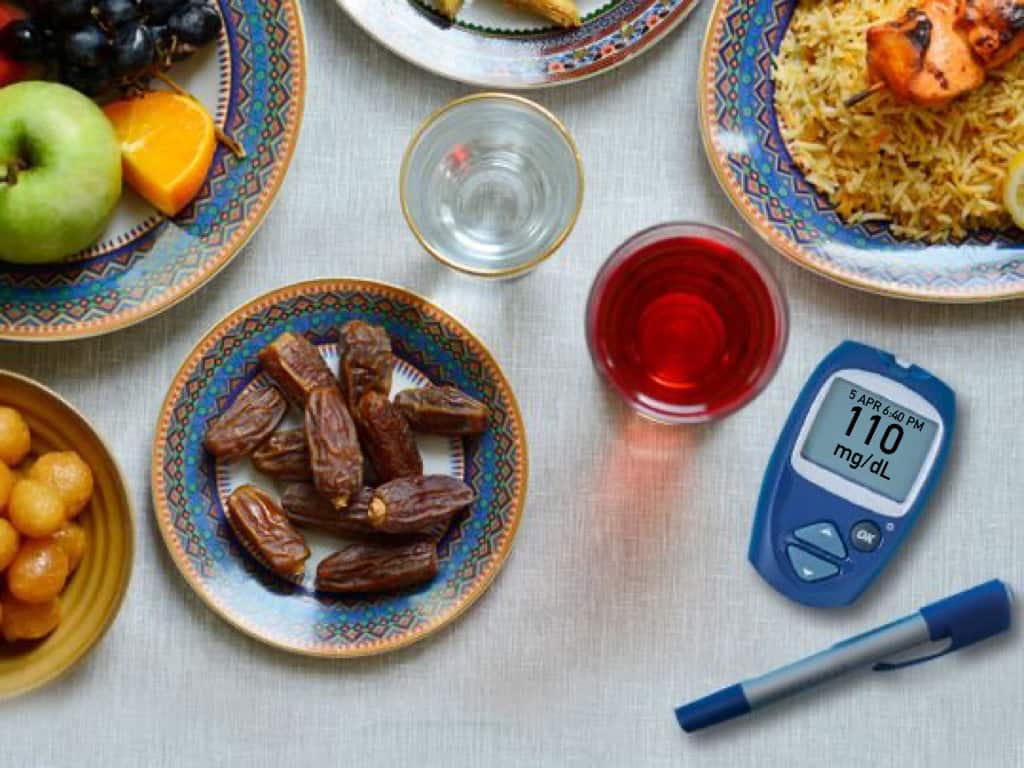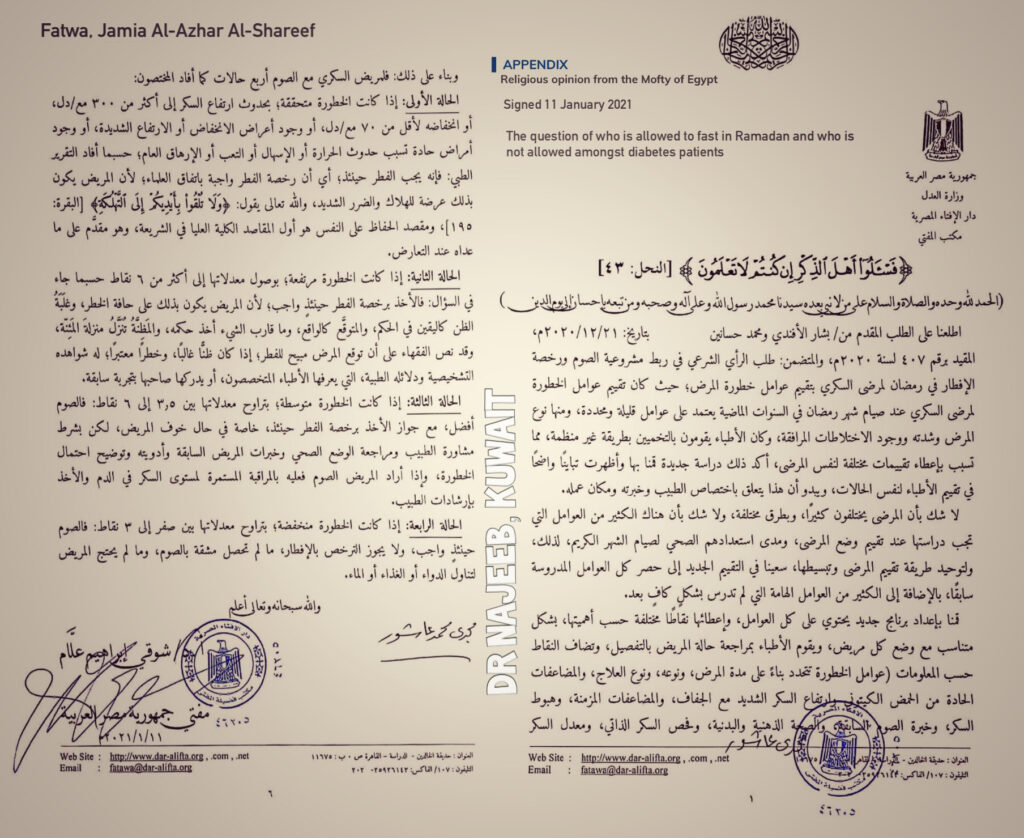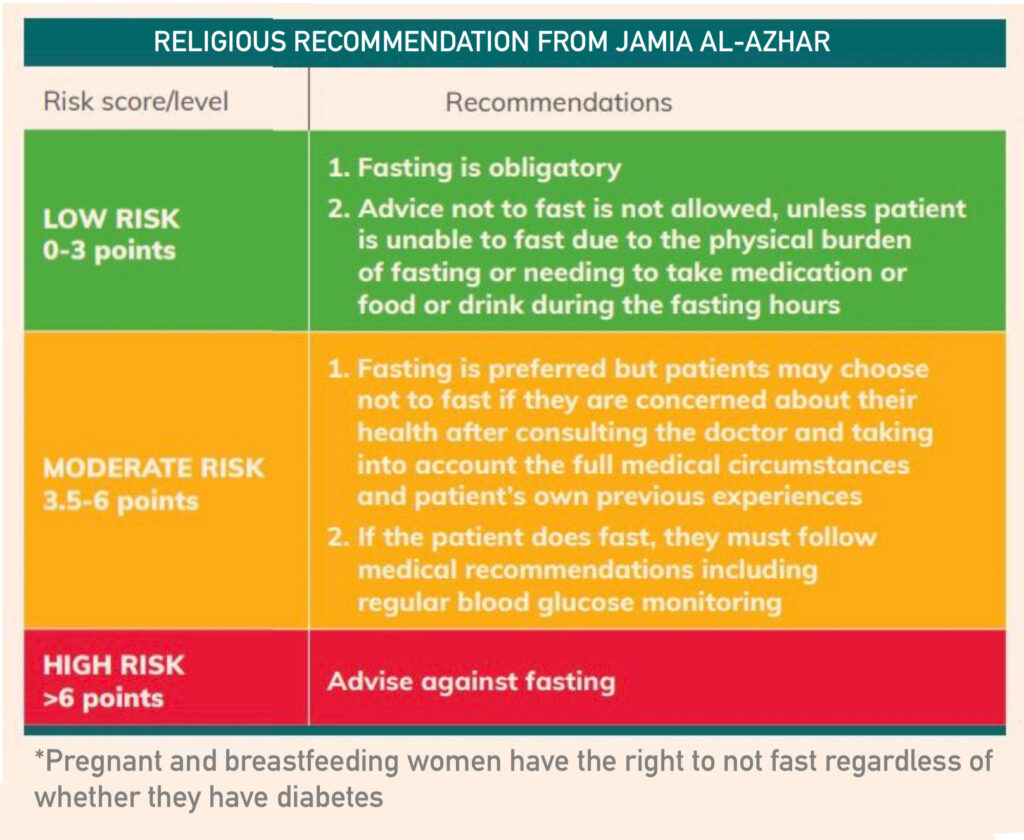

In the holy month of Ramadan, Muslims around the world fast from dawn to dusk. Not only do they abstain from food and drink, but also from certain habits and behaviors.
Fasting is one of the five pillars of Islam, but the religion exempts those suffering from chronic conditions from fasting. Nonetheless, many people with diabetes still choose to fast and doing so might adversely affect their health. Mealtimes change and people with diabetes, like everyone else, consume food that is high in saturated fat and sugars, like sweets and fried food. Fasting during the day and feasting at night leads to wide fluctuations in blood glucose levels that can become problematic. This has led diabetics to ask: “Can I fast this Ramzan?”
Before we answer that question, we must know what happens to diabetics while fasting.
This year, Ramadan begins on the 3rd of April and entails 13- 14 hours of fasting. Such a long gap between meals may lead to metabolic changes in the body, triggering certain complications. Fluid restriction leads to dehydration and blood glucose fluctuations, which can either be low or high. A fall in blood glucose level, known as hypoglycemia, may cause drowsiness, seizures, or unconsciousness. High blood glucose level, known as Hyperglycemia, can cause blurry vision, headaches, increased fatigue, and thirst. Together, hyperglycemia and dehydration can precipitate the formation of ketones (acids) in the blood leading to a condition called Diabetic Ketoacidosis (DKA), which causes abdominal pain, vomiting, dehydration, confusion, and even coma. Dehydration itself may cause thrombosis (blood clots) in people with uncontrolled diabetes.
So, who can or cannot fast in Ramzan?
The International Diabetes Federation, through its Ramzan Working Group called DAR (Diabetes and Ramzan) has issued guidelines on who can or cannot fast. Al-Azhar University (Jamia Al-Azhar Shareef) of Egypt, the highest authority on religious edicts (fatwa) has ratified these guidelines. Diabetic patients wishing to fast in Ramadan are categorized into Low Risk, Moderate Risk and High Risk. Please visit DAR website (https://daralliance.me) for detailed information and to download their fasting risk calculator. There is also a useful App for Android & iPhone available on the website.
Doctors advise people with diabetes at high risk for the conditions mentioned above to not fast. This includes those who have had severe hypoglycemia or DKA within 30 days prior to Ramadan and those with Type 1 Diabetes, or recurrent hypoglycemia. The elderly and those with complications such as chronic kidney disease (kidney failure) and those diabetics who are pregnant and on insulin injections are also at high risk and must not fast.
Most people with type 2 diabetes and no complications can fast as per medical advice, but they must check their blood glucose throughout the day – Sehri time (pre-dawn meal), 12 Noon, 4 pm, Iftar time, 2 hours after Iftar, and when they feel unwell.

According to the International Diabetes Federation and the Jamia Al-Azhar Fatwa, diabetic patients are advised to break their fast if they experience: 1)Hypoglycemia: blood glucose falls below 70 mg/dL with or without symptoms i.e. dizziness, hunger, irritability, confusion, and a faster heartbeat, 2) Hyperglycemia: blood glucose rises above 300 mg/dL with or without symptoms i.e. dry mouth, increased urine and thirst, and 3) presence of symptoms of acute illness such as fever, diarrhea, vomiting, and/or exhaustion. If this happens consult your doctor immediately.

Most anti-diabetes medications and Insulin will need dose adjustments or a change in timing during Ramzan to fast safely. Patients must also take care not to stop insulin by themselves. Therefore, it is important to visit your doctor prior to Ramzan for expert advice related to food & medicine.
Diet in Ramadan
People with diabetes wishing to fast must incorporate a healthy, balanced diet during Ramadan. At Sehri time, include food items that have a low glycemic index and high fiber like brown rice, brown bread & vegetables. Eggs, dal, and meat nourish you with all-important protein and do not raise blood glucose. Remember to stay hydrated. Avoid caffeine, sweet drinks & juices, desserts, and fried food. Eat fewer dates because they are high in fructose, which is sweeter than glucose and this will raise blood glucose levels higher. Ensure that Iftar does not become a feast.
People with diabetes must not exercise while fasting. They may exercise after Iftar. Before, during, and after their workouts, they must keep well hydrated and check their blood glucose to ensure it is within an acceptable range, usually between 140 – 180 mg/dL.
Spirituality, religiosity and personal beliefs are important components of the social determinants that affect patients’ health behaviors and adherence to treatments. But if done right, Ramadan is a good month for detoxification, controlling blood glucose & losing weight. So, make the most of it.
Dr Najeeb is a specialist physician based in Kuwait at JGH Endocrinology & Diabetes Division.
